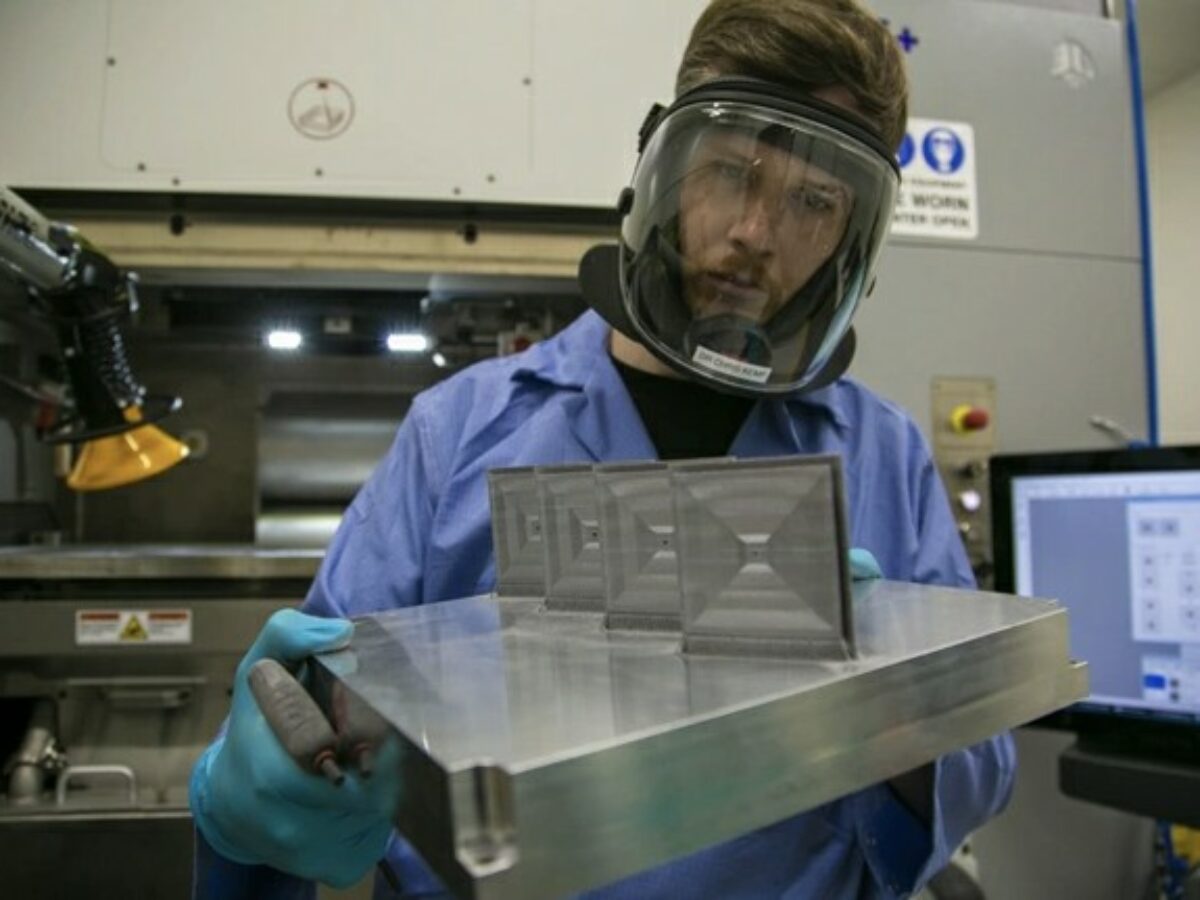The South Australian Government recently set out its plan to leverage the state’s competitive advantages in manufacturing to drive ongoing economic transformation. The government’s Advanced Manufacturing Strategy aims to capture an “unparalleled opportunity” to make the state’s manufacturing sector the global partner of choice.
The strategy aims to promote advanced technologies to mitigate South Australia’s historical challenges of cost, scale, and distance to markets. It also strives to increase value-added exports and position the industry for the next phase of technology and data-driven change as Industry 5.0 emerges.
At a CommBank-hosted event held in Adelaide, manufacturers, customers, and market participants gathered to discuss their role in driving the strategy forward. Iconic beverage manufacturer, Bickford’s Australia and cutting-edge space technology manufacturer, Fleet Space Technologies represented the local sector.
CommBank’s National Manager of Manufacturing, Maria Christina, says South Australia’s manufacturing industry has already demonstrated its global leadership, providing a launchpad to expand.
“We’ve seen South Australia set new standards for manufacturing excellence, sustainable manufacturing and world-class research and development. It means the state has a strong foundation and the existing capabilities to deliver against the South Australian Government’s strategy,” Christina says.
Bickford’s Australia Managing Director, Angelo Kotses and Head of Operations at Fleet Space Technologies, Robyn Clay, revealed how the two businesses are driving growth in local and international markets. Both discussed what’s needed to capture the opportunities ahead and the role of people and technology in achieving them. Here’s what they had to say.
The foundations for a competitive edge
Angelo began by outlining the three core tenets of Bickford’s Australia’s competitive advantage that has seen the business become one of the largest beverage suppliers nationally and a household name.
The first is what Angelo describes as the brand's resilience, pointing to Bickford’s Australia’s diversification into new high-growth beverage segments. The second is achieving greater cost efficiencies than competitors, and the third is long-term thinking and investment to drive continuous innovation.
Robyn Clay agrees that a long-term vision is essential to creating a scalable manufacturing operation. This mindset has helped the space technology manufacturer raise the funding to grow and “open up a world of opportunities relative to other businesses”.
Robyn points out that when Fleet Space Technologies first embarked on its journey in 2015, Australia's space industry and start up community in Adelaide were still fledgling. In these formative stages, collaboration was crucial, with fellow entrepreneurs generously sharing their insights, advice, and guidance.
From there, the business was able to attract continued support to grow its footprint. “Now, we've recently announced our upcoming mission to land on the moon in 2026,” says Robyn. “It will be the first South Australian payload to reach the lunar surface, so it is really exciting.”
Working towards a sustainable future
For Angelo and Robyn, sustainable manufacturing practices and technology are also key drivers of a competitive advantage. For example, Angelo says Bickford’s Australia uses technology to better manage cropping and preserve water across its pomegranate farm.
“Our sustainability journey began 25 years ago when we introduced our high-speed manufacturing line. Initially, for every unit we produced, we consumed approximately 1.3 litres of water,” he says. “Our goal is to use technology like AI or drones to improve our cropping efficiency, and we have already brought our water usage down to just 1.05 litres per unit.”
Robyn explains that Environmental, Social, and Governance (ESG) principles ensure the products Fleet Space Technologies produce are developed and produced sustainably. For Robyn, having good governance is just as crucial as reducing environmental impact.
“Collaborating with partners who share our commitment to sustainable practices is paramount,” she says. “It's about what our technology can achieve and ensuring our practices align with ethical standards.”
Commercialising the next innovation wave
Alongside the Advanced Manufacturing Strategy, Alex Demetriou, who leads KPMG's national practice for Accelerated Business Growth, says that multiple government funding programs are available to manufacturers.
Alex believes that the right approach to applying for funding is essential, encouraging businesses to approach funding strategically rather than as a last-minute endeavour and create a mud map of opportunities.
“Understanding available programs, aligning them with ongoing or upcoming projects, and then being aware of structures can make a difference to success,” Alex says.
“Then you need to look at particular themes where government is focused, where there is a need or a particular market failure. That typically starts with the research and development phase where tax-specific funding incentives can help.”
Alex says that collaboration is another important pathway to commercialisation. For example, partnering with research centres and coming together with other businesses to solve a problem and get a product to market.
Maintaining a growth culture
As Robyn explains, one of the biggest growth challenges is maintaining an entrepreneurial mindset and unified vision as the organisation expands. Added to this is the complexity of ensuring the business has the right people and capabilities.
Robyn says that as the business scales up, it’s growing its workforce, with Adelaide offering a great source of talent. Still, amid nationwide shortages, it employs people globally, particularly for niche technical roles.
With over 120 employees from 35+ different nationalities, preserving that close-knit culture is critical because the dynamics change when teams work across various locations.
She says Fleet Space Technologies “seeks to align everyone to an organisation's core vision so we all work towards the same purpose and progress together”. “Leveraging technology lets us organise virtual town hall meetings that keep everyone informed about company progress and create a sense of unity despite the physical distance,” Robyn says.
Angelo believes workforce intelligence and decision-making abilities are vital to future-proof the business. He says investing in people, not just technology, helps the business become more productive.
“While technology like AI and data are essential, Bickford's Australia’s focus remains on leveraging the inherent skills of our workforce,” Angelo says. “Ultimately, it all comes down to people, their growth, and their involvement in our collective success.”
This dual focus on digital innovation and the people who will carry the manufacturing sector forward is expected to come into even sharper focus as technology advances and roles are reshaped. It can also underpin the ambitions laid out in the Advanced Manufacturing Strategy and elevate South Australia’s standing on the global stage.
Encouragingly, there is a consensus that having a long-term vision and commitment to invest are crucial to building a competitive advantage across the industry. Whether that’s to cement a leading position in beverage manufacturing or go to the moon, South Australia’s manufacturing sector is well placed to succeed.



 Encouragingly, there is a consensus that having a long-term vision and commitment to invest are crucial to building a competitive advantage across the industry. Whether that’s to cement a leading position in beverage manufacturing or go to the moon, South Australia’s manufacturing sector is well placed to succeed.
Encouragingly, there is a consensus that having a long-term vision and commitment to invest are crucial to building a competitive advantage across the industry. Whether that’s to cement a leading position in beverage manufacturing or go to the moon, South Australia’s manufacturing sector is well placed to succeed.


